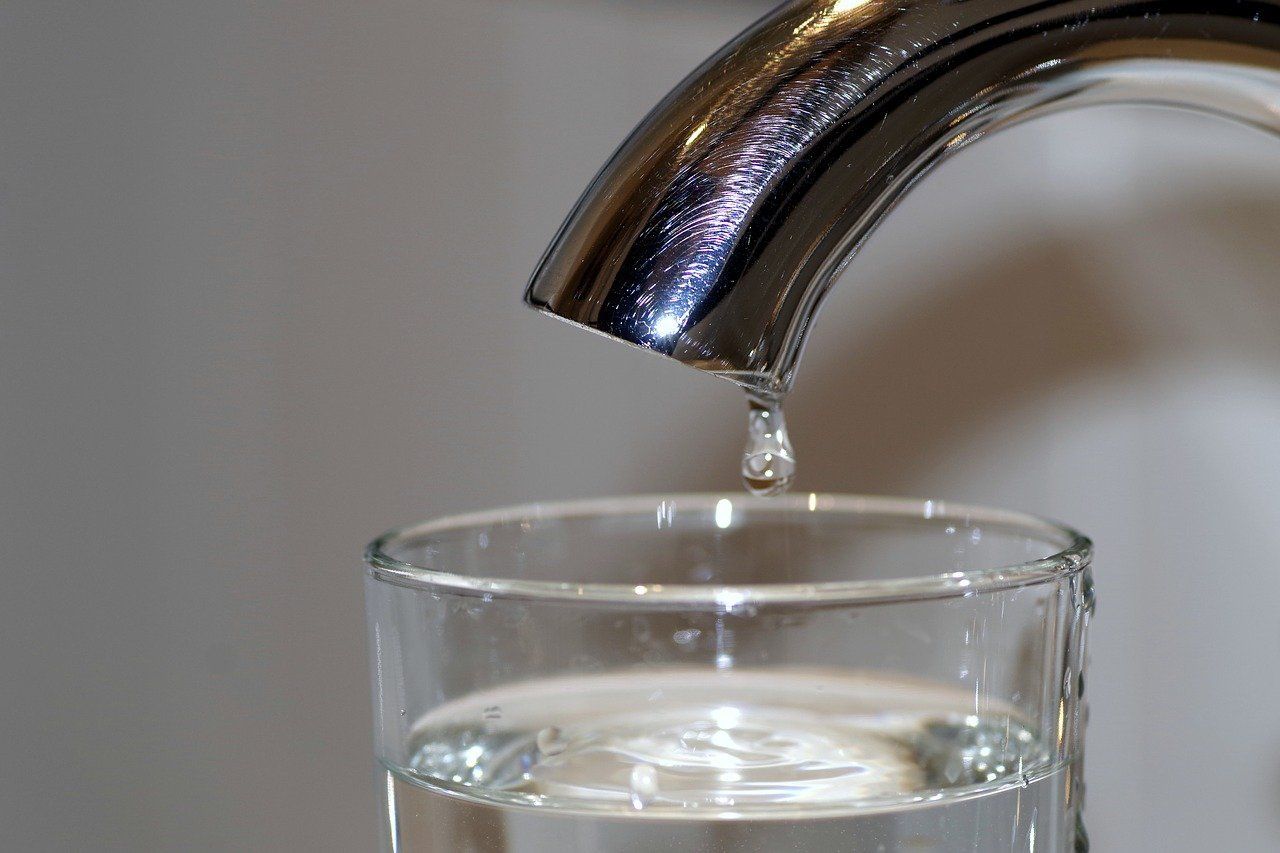Living Water: a Lenten challenge.

I don’t know about you but I take such a simple thing as a glass of water so for granted. All we have to do is turn on the tap and this wonderfully clean H20 comes gushing forth - and we do this so many times a day without thinking about it; having a shower, brushing our teeth, making a cup of coffee. All these things we tend to do on autopilot, taking forgranted the basic necessities of life that are so readily available to us in 21st century Britain.
But the Bible paints a vivid picture of a very different time and place in which water was regarded as a precious and often scarce commodity. In the Old Testament we hear how the Israelites journeyed through the barren wilderness and twice during the Exodus complained to God about lack of water. At Rephidim, they turned on Moses - accusing him of only bringing them out of Egypt to let them die in the arid desert landscape for want of water.
God had already provided for them in so many ways; not only had he delivered them from slavery but also provided miraculous food in the form of manna, but it didn’t take long for them to take these things forgranted and to grumble so persistently that Moses asked God in frustration, ‘What shall I do with these people?’ And so God once again miraculously provided for the Israelites, telling Moses to strike the rock of Horeb, from which he brought forth the precious, life giving and lifesaving water.
In the New Testament we are told about Jacob’s well (which still stands today about 30 miles north of Jerusalem, at the base of Mount Gerizim) where a nameless Samaritan woman ventured out in the blistering mid-day heat in search of water. The fact that she came to the well at this time, rather than the with the other women in the cool of the morning or late afternoon, was unusual. As a woman ‘living in sin’ she probably wanted to avoid the judgmental stares of the other women – but she still needed water. And about Christ, who in his humanity, was thirsty and broke all social taboos by asking this woman to draw him a drink of water.
A potent metaphor
Water is of course one of the building blocks of life. It is considered essential because it is an ideal medium for the chemical reactions necessary to spark life. Every organism we know of needs water to survive – which is why NASA became so excited at the idea that there might be water on Mars - and here on earth human beings are largely composed of water. Our bodies are in fact made up of about 60 – 70% water, and in order to sustain life human beings must consume a certain amount of water to survive. Which is why we often see heart breaking images on our TV screens of women and children walking miles and miles across inhospitable landscapes in search of tiny, often polluted water holes. This is why water is such a potential biblical metaphor, representing different aspects of our relationship with God.
Water is often used to refer to God’s word in the Bible because, like water, God’s word acts as a cleansing agent. Paul, for example, talks about the church being cleansed ‘by the washing with water through the word . . . without stain or wrinkle or any other blemish, but holy and blameless’ (Eph. 5:26-27). John tell us that Jesus uses the metaphor of water to refer to the Spirit of God saying, ‘ Whoever believes in me, as Scripture has said, rivers of living water will flow from within them.’ And of course we are baptized in water to signify the Holy Spirit.
Jesus also likens water to salvation and eternal life, telling the Samaritan woman he meets at Jacob’s well, ‘If you knew the gift of God and who it is that asks you for a drink, you would have asked him and he would have given you living water . . . Everyone who drinks this water will be thirsty again, but whoever drinks the water I give them will never thirst. Indeed, the water I give them will become in them a spring of water welling up to eternal life.’ (John 4: 10-14).
At that time, the term ‘living water’ referred to water that flowed from a spring or a fountain, as opposed that which might stagnated in a cistern and Jews familiar with the scriptures would know that in Jeremiah and Isaiah, the Lord is described as ‘the fountain of living waters’. So Jesus is clearly identifying himself as this inexhaustible source of life itself, here on earth and for eternity. ‘The source of the water of life, bright as crystal flowing from the throne of God and of the lamb.’ (Rev 22: 1).
When Jesus tells the woman that the water he gives will become in her a well of water springing up to eternal life, he is pointing to the indwelling of the Holy spirit, the continual source of life that is always active and flowing in believers. And when he says that whoever drinks of the water that he gives he will never thirst, he means that all who have drunk of this living water are satisfied in the sense that they are rescued from sin and judgement, reassured of the promise of eternal life and the fact that nothing can separate us from this source.
This is such an indescribable gift; and one that so nearly escapes the Samaritan woman - who is still so focused on the urgent need to slake the very human and physical thirst – that the only benefit she can at first imagine is no longer having to walk out of the village to cast a bucket down into a well. It is only when Jesus shocks her into awareness by confronting her with his supernatural knowledge of her sin that her eyes are opened and she sees beyond her immediate worldly needs and recognizes before her the Messiah, the salvation of the world. And at this point, the word that he gives her becomes a spring of water welling up and cleansed she goes back to the villagers from whom she has previously hidden and shares this wondrous new knowledge, and we are told many more believed.
Our Response?
So how do we relate to this great gift of living water? Do we like the Israelites forget all to quickly God’s gifts and his provision, , or are we like the Samaritan woman so consumed by the sheer business of surviving that we fail to see the bigger picture – until we are shocked into realization the life events.
Do we take for granted, like water, so many aspects of our faith? For example, do we take for granted our easy to God’s word, while for some in the world the possession of a Bible will ensure persecution? Do we take forgranted, the fact that in the UK, we can come together and worship in security, without threat to life or limb?
Do we take for granted God’s grace, that forgiveness that we can never deserve? Or the fact that through Christ, our saviour, we have been brought into right relationship with our creator. Or the terrible sacrifice made by to achieve this, which we remember with bread and wine.
We are currently in the period of Lent, the time when Jesus went into the sun-parched wilderness and spent forty days and nights without the basic necessities of life including water, and there wrestled with those things that he could have taken for granted as the Son of God. So for us this is also a time when we give up some of those things that we take forgranted, when we pare ourselves back to basics, when we reflect anew on God’s gifts to us.
So through the last few weeks of Lent, my challenge to you is to let this substance, that we so readily take for granted, be a reminder to you of Christ the source of the living water of salvation. And the next time you turn on a tap to pour a glass of water, to make up a cup of tea, to wash up dishes, to take a moment to reflect and recognize anew God’s gift of in inestimable value.
Kate Nicholas’s book Sea Changed - coming home, healing and being at peace with God is available through Christian book shops and Waterstones throughout the UK and online at eden.co.uk and Amazon worldwide.
